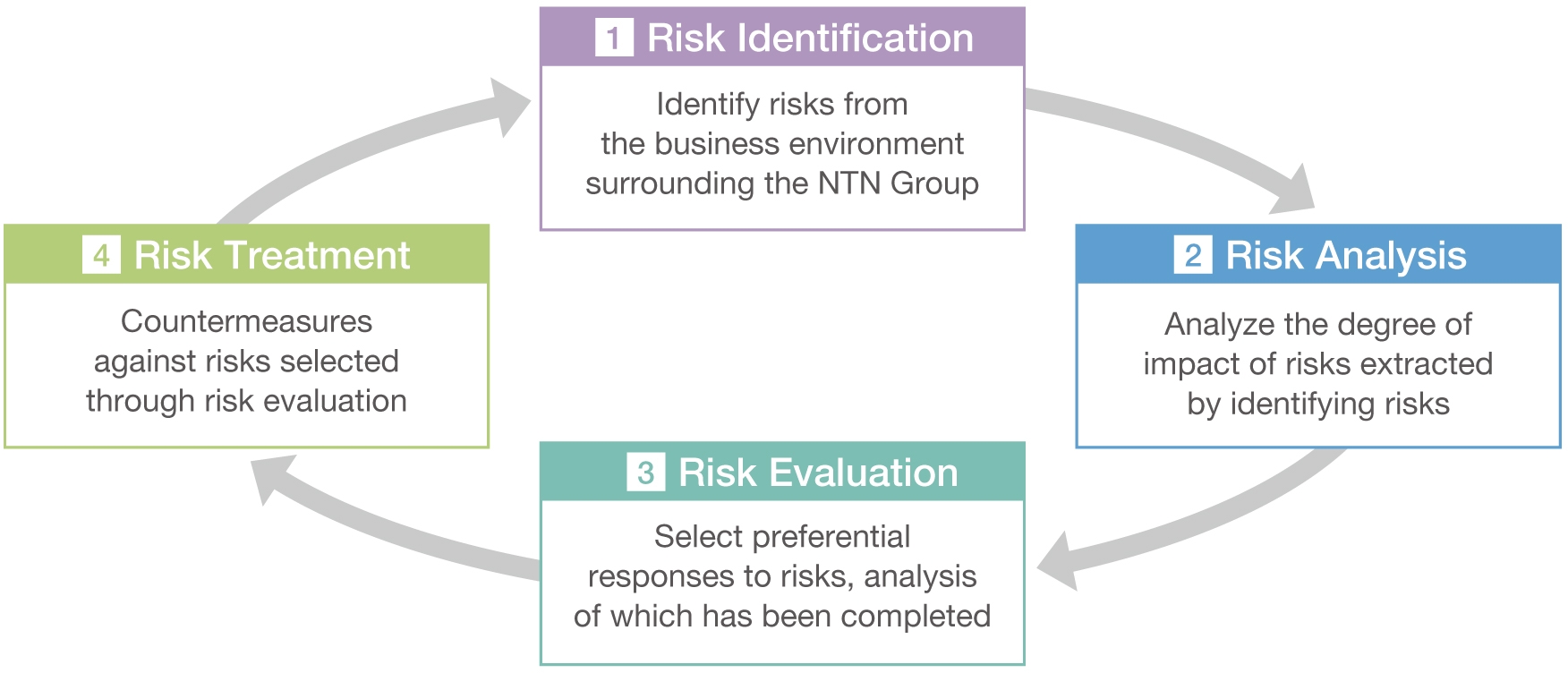Risk Management
Basic approach to risk management
We have developed a Risk Management Policy that outlines our basic approach to prevention and handling of risks that may
hamper the execution of the Group’s business, and the Risk Management Regulations that set forth risk management
organizations and their roles. Through these measures, we promote group-wide risk and crisis-management and BCP/BCM
(Business Continuity Planning/Business Continuity Management).
We convene the Risk Management Committee as an advisory body for risk management twice a year, in principle. The
committee regularly checks risk management process including identification, analysis, evaluation, and treatment with
regard to risks that have a major impact on the management of the NTN Group in light of changes in the internal and
external environment and other factors. We have classified risks into the following 12 categories from the perspective
of ensuring completeness. After that, an administrative manager and a promotion department have been determined for each
specific risk that will have a significant impact on the management of the NTN Group. Through these measures, we
endeavor to reduce risks. The results of the discussion at the Risk Management Committee are reported to the Board of
Directors.
■Risk management process

■Risk Category
- Risks related to technology and R&D
- Risks related to procurement and logistics
- Risks related to production and inventory
- Risks related to quality
- Risks related to sales and marketing
- Risks related to personnel and labor
- Risks related to the environment and health & safety
- Risks related to information systems
- Risks related to finance and accounting
- Risks related to legal affairs and compliance
- Risks related to fire and disaster prevention, etc.
- Others
■Structure

Promotion of BCP/BCM
We have been developing a BCP/BCM structure designed to respond to major earthquakes in Japan
and are working to strengthen our disaster response systems, including those of our group
companies.
We have completed the formulation of BCP to enable early disaster recovery at all domestic
production sites. Now we have also implemented BCP training to assess the effectiveness of the
formulated action plans and have taken necessary advance measures. In doing so, we are moving
ahead with development of BCM.